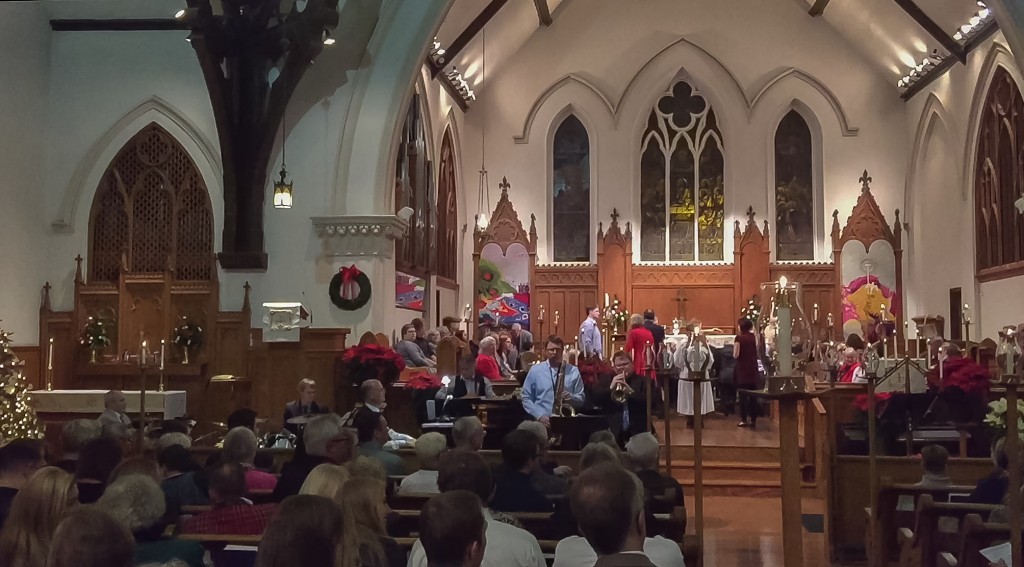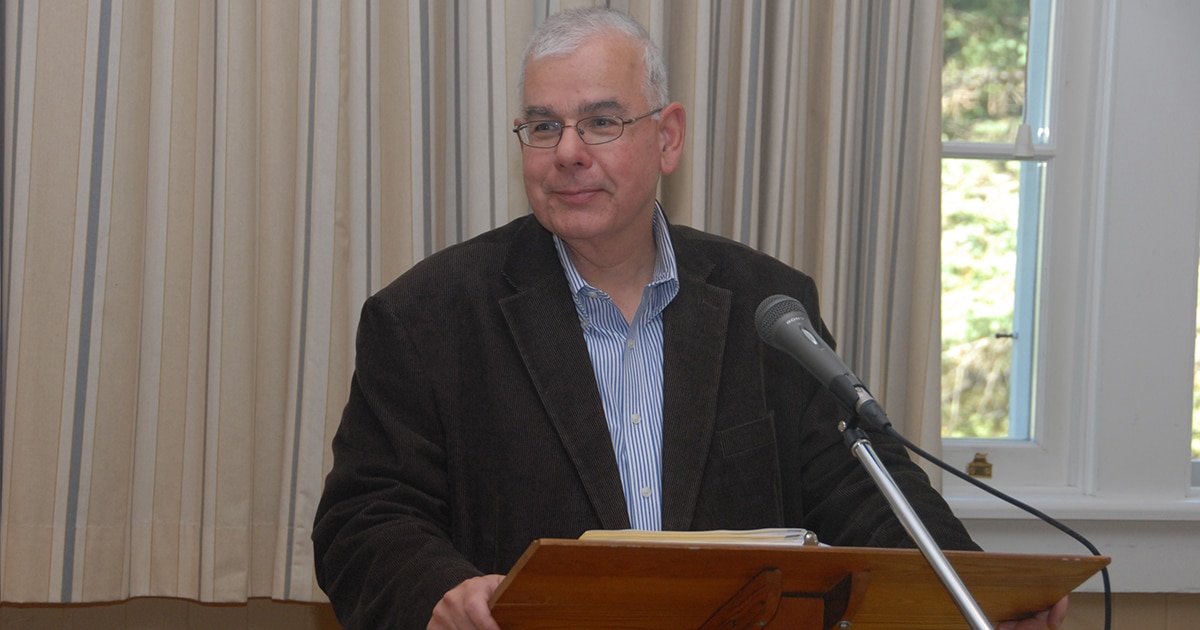The following is part of a new monthly series on congregational development, which features reflections from Anglicans on how they are responding to the challenges and opportunities facing the church today.
Looking out across the landscape of Canadian Anglican churches today, the Rev. Dr. Gary Nicolosi, rector of St. James Westminster Church in London, Ont., sees a “twofold crisis” unfolding—one linked to what he calls a “profound shift taking place in Canadian culture.”
Nicolosi describes the new emerging culture as “multicultural, multi-religious, pluralistic and secular.” Its development has had a profound impact on the Anglican Church of Canada both demographically—as expressed in a gap between the age of the average Canadian (30-something) and the average Anglican (60-something)—and financially, since the Anglicans who give the most money to the church are more than 60 years old with no corresponding group to replace them.
In the context of a strongly secular country that is not so much hostile to church as “indifferent” to it, Nicolosi calls for a church that is more entrepreneurial, market-driven, need-meeting and culturally savvy. In a word, it must engage in evangelism. But as Nicolosi notes, the task of congregational development extends even further.
“It’s being a missionary,” he says. “And what is a missionary? A missionary is someone who takes the gospel from one culture and tries to communicate it in another culture … I think the church has to be missional in the sense that we take the gospel and try to connect that gospel message with a culture that doesn’t understand [the] language.”
Congregational development is a longstanding interest for Nicolosi, who gained his doctorate of ministry in congregational development while studying at Pittsburgh Theological Seminary. He previously received a master of divinity degree from Trinity College at the University of Toronto, before serving in his first parish at Malbay, Gaspe Coast in the diocese of Quebec.
Coming from Toronto, Nicoloi saw the disparity between congregations in Canada’s largest city and those in the rest of the country.
“Toronto is wealthy, it’s populated, it has every appearance of being a healthy diocese,” he says.
“You go beyond Toronto and things change rapidly and markedly, and in the Gaspé in Québec and in Montréal, the numbers were shocking for me. They were very small, [with] dwindling membership, aging congregations, struggling with money, and what I found on the Gaspé is what I found in much of Canada.”
Having lived in the United States for 22 years, Nicolosi identifies one of the biggest differences between The Episcopal Church and the Anglican Church of Canada as the stewardship campaigns that take place in almost every U.S.-based church, but which are relatively rare in Canada.
While a greater emphasis on stewardship may alleviate part of the funding crisis affecting many Canadian churches, changing demographics remains a long-term challenge. To serve as missionaries to the wider culture, Nicoloi suggests a three-pronged strategy for church growth and revitalization—spiritually, to be a community that experiences God; incarnationally, to be a church that connects with culture; and missionally, to have an outreach orientation.
In terms of culture, he offers the example of the annual Christmas jazz mass at St. James, which features some of London’s best jazz musicians and attracts huge crowds exceeding the 500-seat capacity of the church.

“It’s really successful … It’s got this real notoriety around town,” St. James music director Stephen Holowitz says of the Christmas jazz service. Reflecting on his own experience, he adds, “I think it made the tone of the service very distinctive, and I think it appealed to people who liked the musical style.”
Throughout the year at regular services, Holowitz consciously tries to maintain an eclectic selection of music, mixing both traditional and contemporary styles.
“Any time we do music that can resonate with people, people seem to come,” Nicolosi says.
“You’ve got to go beyond 19th century English choral music,” he adds. “It’s not that it’s not good. It’s not that it’s not beautiful, and many people still appreciate it. It’s just that it doesn’t speak to the majority of people … We’ve got to begin to speak to the culture where it is.”
Speaking to his own congregation, Nicolosi describes congregational development in terms of what he calls a “4M church” based on four key concepts:
- Maintenance of church buildings in a renewed way that speaks to people today. Offering a comparison to banks, which used to be “built like fortresses” but which are now more bright and spacious, Nicolosi stresses the need for churches to be welcoming and inviting.
- Mission, in terms of maintaining an outward focus and ministering to people beyond the congregation itself.
- Ministry, through focusing the mission on the unique needs of one’s immediate area, such as social outreach ministry in an inner city church or a focus on young families in a suburban church.
- Membership in the congregation, which might be made more fluid, allowing seekers and inquirers to become part of the community without any pressure or expectations. In Nicolosi’s words, “The church should be a birdbath rather than a bird cage.”
Offering a wide-ranging yet “controversial” suggestion, Nicolosi calls for a less hierarchical decision-making structure for the church nationally, encouraging innovative approaches to ministry from parishes, clergy and lay people.
“If we can allow that freedom without being threatened by it, I think that would be the biggest plus for the Anglican Church … to hold on to what is at the core of our faith, but to allow people who are mavericks to try new things and experiment, because they may be on to something that we need to listen to and consider.”
Interested in keeping up-to-date on news, opinion, events and resources from the Anglican Church of Canada? Sign up for our email alerts .

